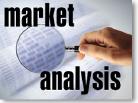|
Meehan: It's just cyclical
|
 |
August 31, 1998: 9:59 a.m. ET
Analyst says sell-off won't hurt U.S., if Greenspan plays his cards right
|
NEW YORK (CNNfn) - A little more than a month ago, the major stock market indexes climbed to all time highs. On July 17, the Dow Industrials and the S&P 500 peaked, but the Dow has since fallen nearly 14 percent and the S&P 500 13.4 percent.
The tech-heavy Nasdaq, which also hit a high in July, has lost more than 18.5 percent of its value. While the Russell 2000 topped out in April, it has plunged 27 percent since then.
Bill Meehan, senior market strategist at Cantor Fitzgerald, appeared on "Business Day" to discuss where investors go from here. Following is a partial transcript.
JOHN DEFTERIOS, CNN ANCHOR: After doing extensive reading this week and trying to make some hay out of what we saw last week, one idea keeps on popping up again, and that is depression outside of our borders, particularly in Latin America. But we already see it taking place in Asia. This is lapping up right against our shores. With that as our backdrop, what are you saying now?
BILL MEEHAN, SENIOR MARKET ANALYST, CANTOR FITZGERALD & CO.: Well, I'm saying that if the Fed doesn't make a mistake, I believe that we're probably experiencing an ordinary, garden-variety type of cyclical bear market, which I believe we may already be halfway through.
BEVERLY SCHUCH, CNN ANCHOR: But we're seeing signs that investors are more skeptical, ignoring the fundamentals. How long do you expect that investors will hang in there?
MEEHAN: Well, investors, I think for the most part, have been ignoring the fundamentals for the entire year. We came into 1998 with clearly a deteriorating earnings picture and it's only gotten worse. And stocks were just bid higher. It appeared to me just it was money chasing money, stocks were going up, people had money. Buy some more stocks, the greater pool theory, basically. I think now what we're faced with is the question of whether the shift to global capitalism is going to take a step backwards, and it's a much more risky environment than what we had been anticipating.
DEFTERIOS: In fact, Hong Kong stayed out of the market for the first time in two weeks and look at the results, down 7 percent. We see the heavy hand of government in Malaysia already, and Indonesia. Obviously that's the trend towards Russia right now. Does this affect all this deregulation of lower trade barriers and gaps, and we have the reversal of what we've built for the last decade?
MEEHAN: Potentially it does, John. And I told our clients this morning in a piece we put out in the morning news every day that I'm afraid that our leaders, or lack of leadership -- not only here, but throughout the West and certainly in the world's second-largest economy in Japan -- may have left us missing an extraordinary opportunity to go into the new millennium with broad-spread growth and capitalism and freedom and free markets. And the risk right now is that we're taking a nasty step backwards, as evidenced by Hong Kong being out of the stock market over the past two weeks.
DEFTERIOS: They were so proud before to be just like Wall Street. They got rid of that in a month, basically.
MEEHAN: That, in and of itself, was enough to make me step back and be much more concerned than I had been.
SCHUCH: And if you can quantify it a little bit, how severe do you think the contagion will be for the U.S. markets?
MEEHAN: Well again, if the Fed doesn't make any mistakes and Mr. Greenspan is smarter than the average guru -- and I think he's done a splendid job of managing the economy -- I think it won't have devastating impact on our economy. However, with the exposure to the stock market that individuals have at record levels, and if we do, as I expect, see an ordinary bear market, it'd probably be enough to stem consumer demand, and we'd probably see a little bit of a cutback in capital spending. That should ease on the economy and then the Fed will be in a position to lower interest rates and keep our economy relatively isolated.
But clearly the United States is not an island unto itself, and especially now, even with the correction that we've had. The S&P is still trading at more than 20 times what analysts expect for next year's earnings. And I don't think those expectations are anywhere near reality.
DEFTERIOS: That brings up a good point. S&P 500 earnings projected to be 12 percent in 1999. We're going to be lucky to get 5 percent in '98.
MEEHAN: Exactly.
DEFTERIOS: So how do we leap up?
MEEHAN: We don't. There's no magic wand that's going to happen and clearly, the events in Asia are not going to turn on a dime nor turn this year. Hopefully, sometime next year, the emerging markets can regain their footing and we can build from there. And that's why I think it'd be a horrible mistake for the Fed to ease here. It would have no benefit to Russia, no benefit to the most of the emerging economies. It might help Canada a little bit in the near term. But then we'd be faced with the potential of a blow off. And next year, the Fed would be faced with a situation of potentially having to tighten when the emerging economies need us most to be an engine of strength. 
|
|
|
|
|
|
CNNfn Markets
|
Note: Pages will open in a new browser window
External sites are not endorsed by CNNmoney
|
|
|
|
 |

|

